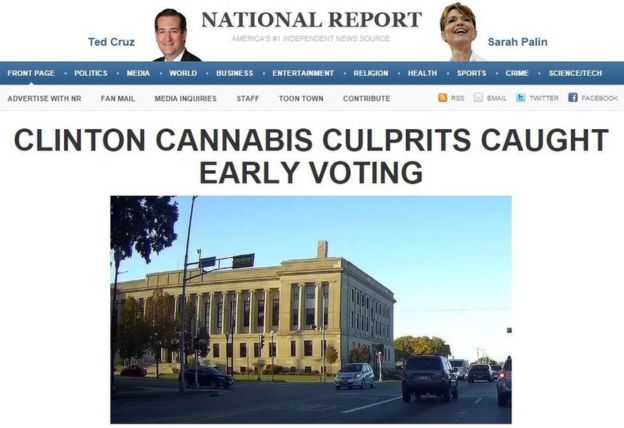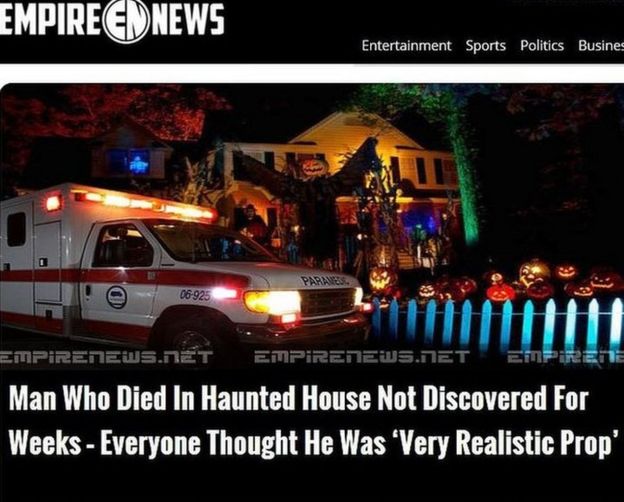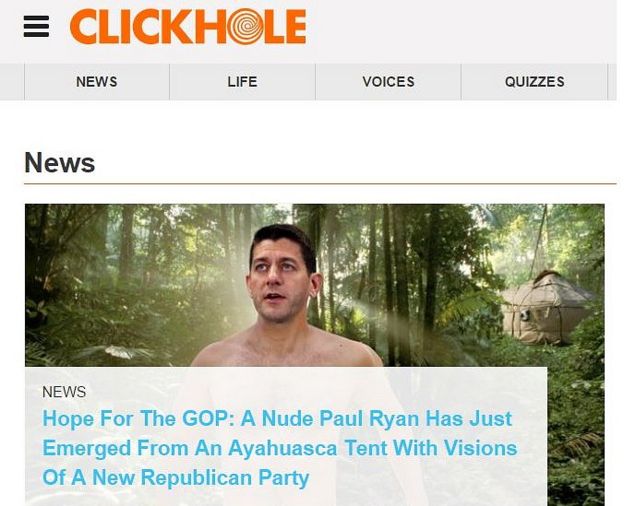This is how fakes happen and how to ensure you're not the one left holding the blushing emoji after an unfortunate sharing incident.
'Rigging the election'
Claims of voter fraud in the Democrat primaries keep resurfacing, apparently supported by video.
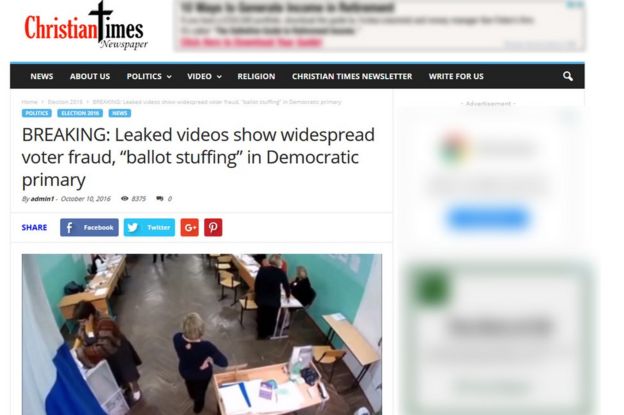
The CCTV showing "Democrats stuffing votes into ballot boxes" includes the same footage the BBC used on our Youtube account about Russian elections in September 2016.
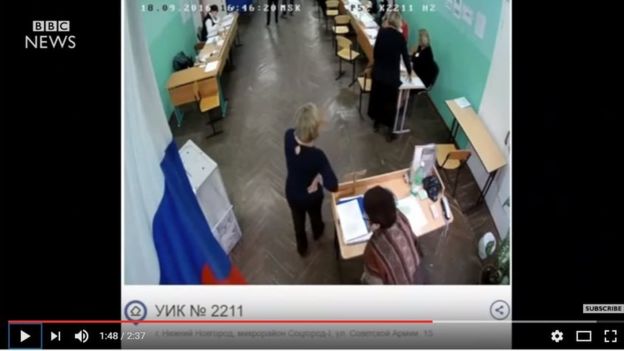
The source of the story as identified by Snopes - one of the internet's oldest debunking sites - is a fake news site, Christian Times Newspaper. Which is not the Christian Times, also a newspaper, and a genuine news site.
Making a site look like something you might have heard of - passing off - is about as standard for hoaxers as fake ID is for teenagers. It might look respectable but unless you are absolutely sure, don't share it.
Spoof sites tend to have a lot of broken links that don't go anywhere, or which lead to blatantly false stories.
Haven't I seen you before?
Video being described as something it's not is increasingly challenging for fact checkers. We suggest that you always search video platforms for anything with a similar description.
The hoaxers could have done some pretty basic cropping to hide the datestamp and make the massive Russian flag on the left less obvious. They didn't, which made it easier to spot.
It's not quite faking a Facebook Live from space, but this one does fit the "dog pretending to be a cat" typology of fake story.
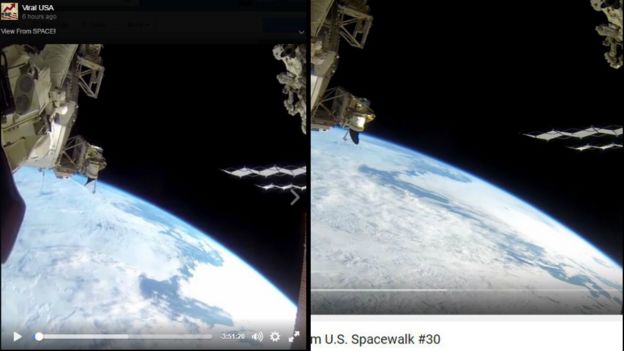
Things to ask yourself before you share a claim
Have I heard of the publisher before?
Is this the source I think it is, or does it sound a bit like them?
Can I point to where this happened on a map?
Has this been reported anywhere else?
Is there more than one piece of evidence for this claim?
Could this be something else?
'No justification' for voter fraud claim
Sometimes a fake claim works on the principle that if you throw enough bricks, eventually you build a house. Think moon landings.
Republican candidate Donald Trump has played the voter fraud card, warning his supporters "Of course there is large scale voter fraud happening on and before election day. Why do Republican leaders deny what is going on? So naive!"
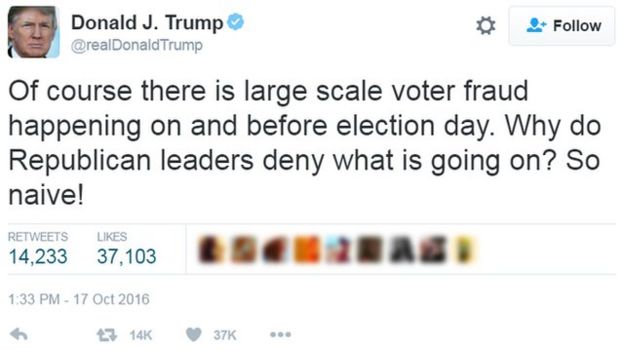
We've dealt with this one already and the answer to "is the US election really rigged?" is "there's just no justification for concern about widespread voter fraud," according to Ohio Secretary of State Jon Husted, a Trump-supporter.
The same goes for "dead people vote Democrat", "people bussed in" and "stolen votes" claims.
It's also something of an US Election meme - Newsnight reported on the same sort of claims in 2008
Sharing these sort of claims as accurate will only make it harder for you to spot the outrageously false claims when they come along.
If in doubt, type it out
It's almost inevitable that someone will try and call the US election result using a fake account posing as your preferred big news organisation.
See if you can spot which of these is a genuine BBC News Twitter account.
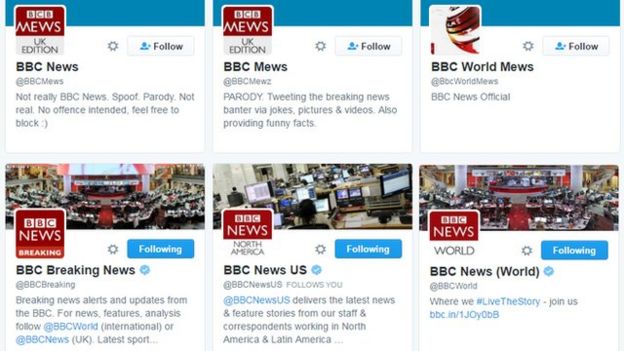
At a glance anyone could be forgiven for reading BBC Mews as BBC News - character substitution combined with branding that looks official is a common trick of the fakers.
That can mean using a zero (0) instead of an 'o' or two words that look similar on the page - for example gum and gurn. If it looks wrong when you type it out, then it's probably wrong.
If we had a dime for every time we've seen this trick, we'd make Warren Buffett look like a pauper.
Our advice is to make a list of accounts you know are genuine now and use them as a reference on the night. If it's a site you're less familiar with, check where else it is mentioned and what they say about it.
http://www.bbc.co.uk/news/world-us-canada-37848350




















